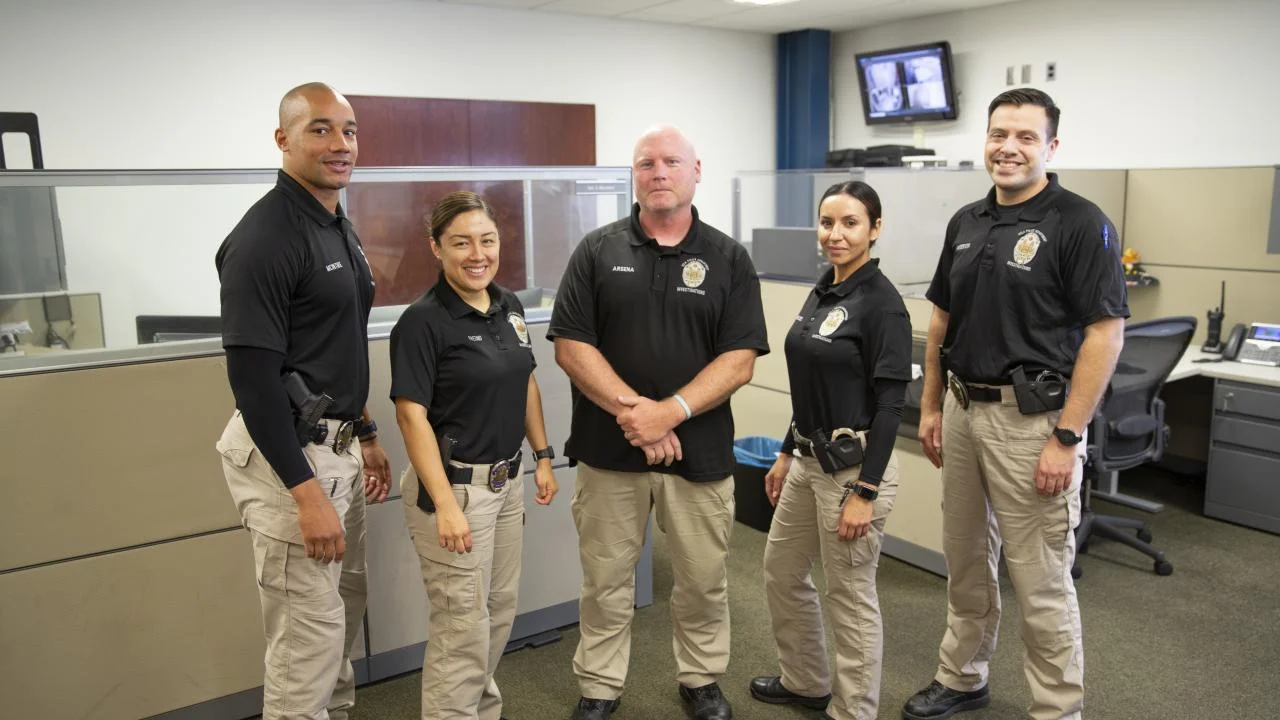
When it comes to law enforcement, police detectives are the unsung heroes who work tirelessly to solve complex cases and bring criminals to justice. These highly skilled individuals possess a unique set of skills and expertise that enable them to uncover vital clues, analyze evidence, and piece together puzzles to solve crimes. But there’s more to police detectives than what meets the eye. In this article, we will delve into the fascinating world of police detectives and explore 15 mind-blowing facts about their profession. From their extensive training and investigative techniques to the challenges they face on a daily basis, get ready to be amazed by the incredible work done by these dedicated law enforcement officers.
Key Takeaways:
- Police detectives undergo rigorous training, use advanced technology, and work undercover to solve crimes, showcasing their remarkable skills and dedication to justice.
- With their expertise in evidence collection, profiling criminals, and collaboration with other agencies, police detectives play a vital role in keeping communities safe.
Police detectives are highly trained investigators.
With specialized knowledge and skills, these individuals undergo rigorous training to handle complex criminal cases and gather evidence.
They work closely with forensic experts.
Police detectives collaborate with forensic teams to analyze evidence such as fingerprints, DNA, and ballistics, aiding in the resolution of crimes.
Police detectives use advanced technology in their investigations.
From surveillance equipment to computer software, detectives leverage technology to track suspects, analyze data, and uncover hidden connections.
They specialize in different areas of criminal investigation.
Some detectives focus on homicide, while others specialize in financial crimes, cybercrimes, or narcotics. Each area requires specific expertise.
They often work undercover.
In order to gather crucial information, detectives may assume false identities and infiltrate criminal organizations, putting themselves at risk.
They conduct thorough interviews and interrogations.
Detectives rely on their strong communication skills to extract information from witnesses, victims, and suspects, leading to breakthroughs in cases.
They play a vital role in cold case investigations.
Cold cases are unsolved crimes, and detectives employ fresh perspectives and new techniques to re-examine evidence and potentially solve these mysteries.
They often face dangerous situations.
From apprehending armed suspects to conducting raids on criminal hideouts, police detectives constantly put their lives on the line to protect the community.
They collaborate with other law enforcement agencies.
Detectives work with local, state, and federal agencies to coordinate efforts, share information, and bring down organized crime syndicates.
They possess exceptional analytical skills.
Detectives are trained to think critically and analyze complex situations, allowing them to connect the dots and solve intricate criminal puzzles.
They are skilled in evidence collection and preservation.
From securing crime scenes to properly packaging and documenting evidence, detectives ensure that crucial pieces of the puzzle are not compromised.
They are skilled at profiling criminals.
Using behavioral analysis, detectives can develop profiles of potential suspects, enabling them to narrow down their investigations and identify likely culprits.
They have extensive knowledge of the law.
Police detectives stay up to date with current laws and legal procedures, ensuring that their investigations adhere to legal standards.
They often face high-stress situations.
The nature of their work exposes detectives to intense pressure and emotionally challenging scenarios, requiring them to remain composed and focused.
They are committed to seeking justice.
Above all, police detectives are driven by a deep sense of justice, dedicating their lives to bringing criminals to account and making communities safer.
Conclusion
In conclusion, police detectives are the unsung heroes of law enforcement. They possess a unique set of skills and play a crucial role in solving crimes and bringing justice to the victims. The facts mentioned above shed light on the fascinating world of police detectives and their exceptional work in investigating mysteries.From their rigorous training to their reliance on forensic science and technology, police detectives employ various methods to solve complex cases. They have to be observant, analytical, and possess excellent communication skills to interview witnesses and suspects effectively.Being a police detective is not only about solving crimes, but it is also about serving the community and ensuring public safety. Their dedication and determination deserve our admiration and respect.If you have ever wondered about the life and work of police detectives, the facts presented in this article provide a glimpse into their world. Their relentless pursuit of justice and commitment to serving the community make them truly impressive individuals.
FAQs
Q: What qualifications are required to become a police detective?
A: To become a police detective, one needs to be a police officer first. This requires meeting the minimum age requirements, having a high school diploma or GED, and successfully completing a police academy training program. After serving as a police officer for a certain period, individuals can apply for promotion to become a detective. Additional qualifications such as a college degree or relevant experience can increase the chances of becoming a detective.
Q: How long does it take to become a police detective?
A: The timeline to become a police detective varies depending on the individual and the department. Generally, it takes several years of experience as a police officer before being eligible for promotion to detective. This can range from three to seven years or more. The process also involves passing promotional exams, background checks, and interviews.
Q: What are some challenges faced by police detectives?
A: Police detectives face numerous challenges in their line of work. Some of the common challenges include handling high-pressure situations, working long and irregular hours, dealing with emotionally charged cases, managing heavy caseloads, and staying updated with the latest investigative techniques and technologies. They also need to juggle multiple cases simultaneously and solve complex puzzles in order to bring criminals to justice.
Q: Is being a police detective dangerous?
A: Being a police detective can be dangerous as they often deal with dangerous criminals and are exposed to unpredictable situations. Detectives may find themselves in potentially life-threatening scenarios while apprehending suspects or conducting investigations. However, they receive specialized training, have access to protective gear, and work collaboratively with other law enforcement agencies to minimize risks and ensure their safety.
Q: What is the role of technology in police detective work?
A: Technology plays a crucial role in modern police detective work. Detectives use various tools and advancements such as forensic software, DNA analysis, surveillance cameras, facial recognition systems, and computer databases to gather evidence, track suspects, and solve crimes. Technology has significantly enhanced the efficiency and accuracy of investigations, enabling detectives to unravel complex cases that were once deemed unsolvable.
If you're fascinated by the thrilling world of police detectives, you'll love exploring more captivating facts about crime-fighting duos and their gripping adventures. From the hilarious antics of mismatched partners in "Tango Cash" to the gritty streets patrolled by "Freebie and the Bean," these stories will keep you on the edge of your seat. Don't miss the chance to delve into the suspenseful tale of a detective protecting an Amish boy in "Witness," a film that masterfully blends action and drama.
Was this page helpful?
Our commitment to delivering trustworthy and engaging content is at the heart of what we do. Each fact on our site is contributed by real users like you, bringing a wealth of diverse insights and information. To ensure the highest standards of accuracy and reliability, our dedicated editors meticulously review each submission. This process guarantees that the facts we share are not only fascinating but also credible. Trust in our commitment to quality and authenticity as you explore and learn with us.


